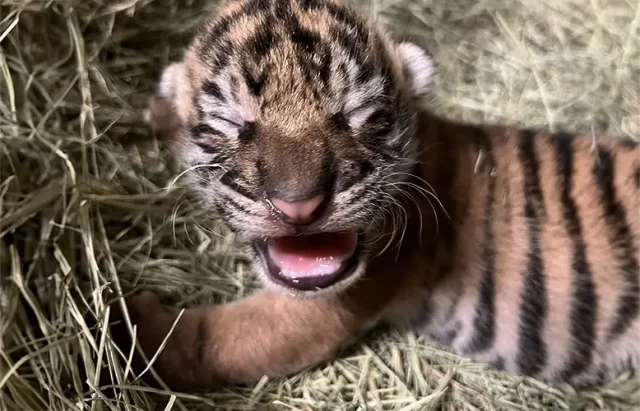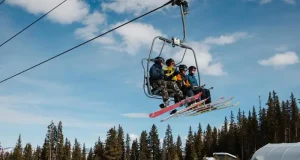
San Diego Zoo Wildlife Alliance is celebrating the birth of a Sumatran tiger cub at the San Diego Zoo Safari Park’s Tull Family Tiger Trail habitat. The cub was born August 23 to first-time mother Jillian. This birth is an important step in San Diego Zoo Wildlife Alliance’s ongoing work to conserve Sumatran tigers.
Wildlife care specialists are closely monitoring Jillian and her cub, and they report Jillian has quickly taken to being a mom and has been demonstrating all the expected and correct maternal behaviors. The cub has shown attachment to Jillian and has been very active and vocal as they explore and grow.
“We are thrilled at the birth of this very special tiger cub at the San Diego Zoo Safari Park,” said Lisa Peterson, senior vice president and executive director, San Diego Zoo Safari Park. “This birth adds Jillian’s incredibly important genes into the pool of the population, furthering the genetic diversity and health of the Sumatran tiger species.” Added Peterson, “Jillian’s care team has done an exceptional job monitoring her and her cub throughout this process, and it has been a joy for them to watch her enjoy motherhood. We hope this cub will allow our guests to gain a greater understanding of this incredibly special species and the importance of conserving their natural habitats.”
The birth is a result of a breeding recommendation through the AZA Sumatran Tiger Species Survival Plan (SSP) Program. Each SSP Program, overseen by conservationists nationwide, ensures genetic diversity and healthy, self-sustaining assurance populations of threatened and endangered wildlife.
With only an estimated 400 to 600 remaining in native habitats, Sumatran tigers are critically endangered. Tigers face many challenges, including loss of habitat, human-wildlife coexistence and poaching. People can help protect tigers by avoiding products made with non-sustainable palm oil, an industry that harms tiger habitats, and by refusing to purchase items made from endangered wildlife.
Jillian and her cub will remain in her den for several weeks. This window of time is crucial, as it allows the youngsters to bond with and learn from their mother. When Jillian is ready, she will bring her cub out of the den, where they will have access to a specially designed maternity habitat that allows Jillian to keep an eye on her cub while they explore the outdoors for the first time. Wildlife care specialists estimate this will happen when the cub is 10 to 12 weeks old, though it will be dependent on health and behavior.





